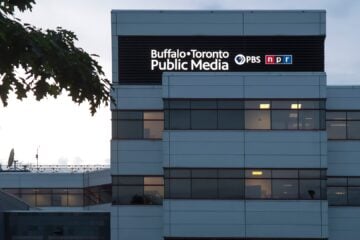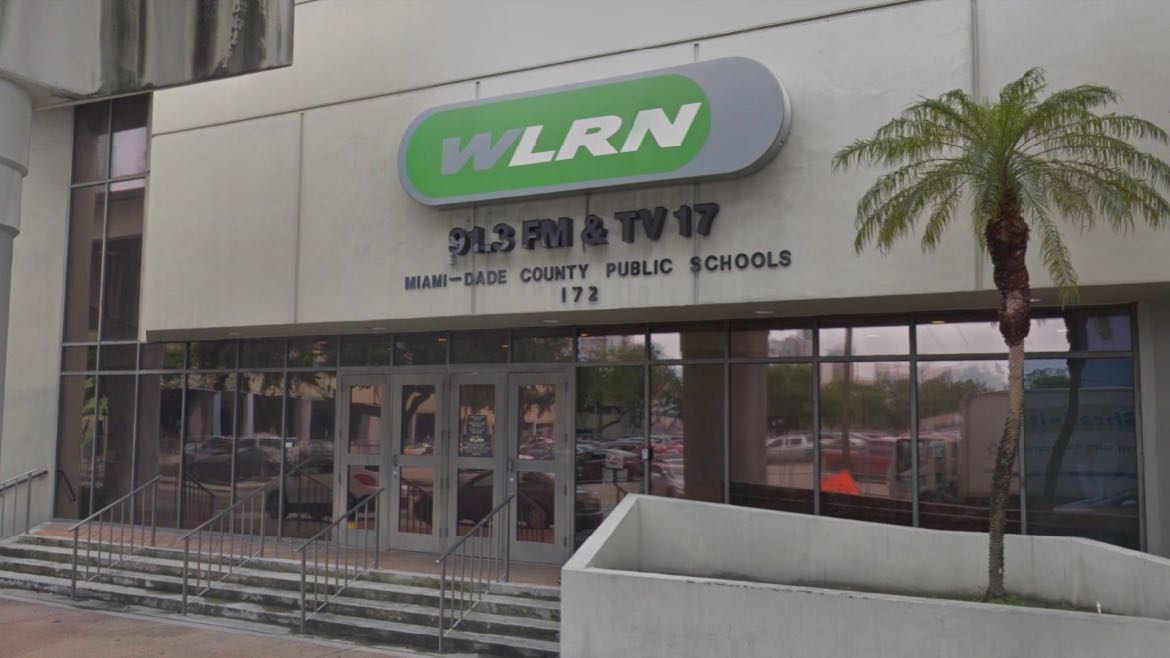With branded beers, stations invite new audiences to crack open a cold one
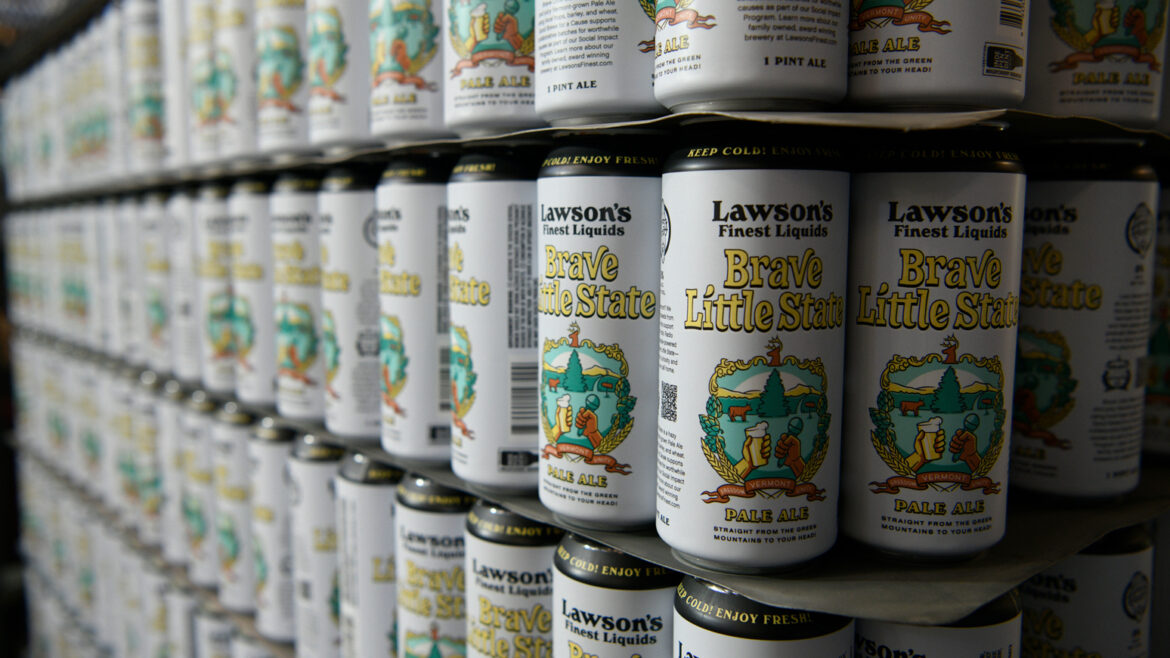
The Brave Little State beer.
The path to a new audience might be through a six-pack.
That’s the approach some public broadcasters are taking to connect with younger people in their communities who may not be tuning in but are game to try a new co-branded brew. Recent months have seen the release of beers in St. Louis, the Twin Cities and Vermont that stemmed from collaborations between stations and local brewers.
For stations, the partnerships get their brands on cans, create opportunities for events and add an element of fun to their image and the workplace. Meanwhile, brewers get a way to give back to a local institution and express their thanks for public media.
Beer isn’t the only consumable product that public media organizations have slapped their names on. You can appreciate the bouquet of an NPR Planet Money Cabernet or join the network’s coffee club. Some stations have also offered their own coffee blends.
Research bears out beer’s appeal to the public media audience: According to 2020 data from NPR, about half of its listeners had consumed beer in the past six months, a 20% higher rate than the total U.S. population.
The beers resulting from the recent station collaborations are as unique as the communities they come from. Two use locally sourced ingredients, and another was developed with input from social media polls. Each beer is a homegrown effort, born of warm relationships between brewers and station staffers.
Murphy Johnson, co-founder of BlackStack Brewing in St. Paul, Minn., is a lifelong PBS fan who enjoys Ken Burns documentaries and local programs on TPT. He connected with TPT after the station left a comment on a BlackStack Facebook post. He dropped off a gift of free beer for the station, and talks began about a collaborative brew.
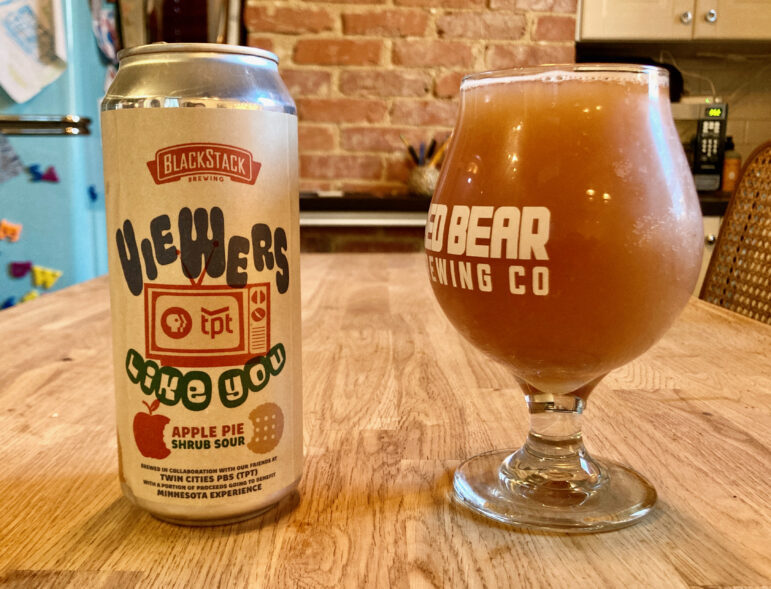
“I didn’t realize that they’d never done a beer project before, and I was really honored that they wanted to do it with us, because I’ve been watching these programs with my parents and my siblings since I was, like, four or five years old,” said Johnson, who is also BlackStack’s director of creative and product development and “Vibe Curator.”
The resulting beer, Viewers Like You, incorporates locally sourced apples, apple cider vinegar and autumnal spices into a juicy mouthful. (BlackStack and the other brewery-station partners provided samples of their beers for this article.) Tart and refreshing, it pays tribute to a rejuvenating, vinegary drink that Minnesota farmers used to enjoy after working in the fields during harvest time.
That’s a metaphor, Johnson points out, as a portion of the beer’s sales are providing energizing funds for production of Minnesota Experience, TPT’s local history series. Johnson intended the beer to be released in conjunction with the debut of a new season of the show, but a shortage of local apples delayed the schedule.
‘Oh my gosh, that’s it’
Local ingredients are also integral to the flavor and spirit of Brave Little State, a beer produced by Vermont Public Radio and Lawson’s Finest Liquids. The brewery in Waitsfield, Vt., is renowned for brews such as Sip of Sunshine, a hoppy India pale ale revered among beer geeks. It sourced hops and grains from Vermont providers for Brave Little State, which shares its name with a VPR podcast and comes from a 1928 speech by President Calvin Coolidge, a Vermont native.
The partnership between VPR and Lawson’s sprang from a bona fide driveway moment. Brewery founder and CEO Sean Lawson had been trying to come up with a name for a new IPA. One contender was “1791,” the year of Vermont’s founding, but Lawson feared that the reference would be lost on most customers.
Driving home from work one day, Lawson heard a VPR promotion for Brave Little State. “I was like, ‘Oh my gosh, that’s it,” Lawson said. “That’s the essence of Vermont. It’s a Vermont-grown beer. There’s this awesome podcast.”
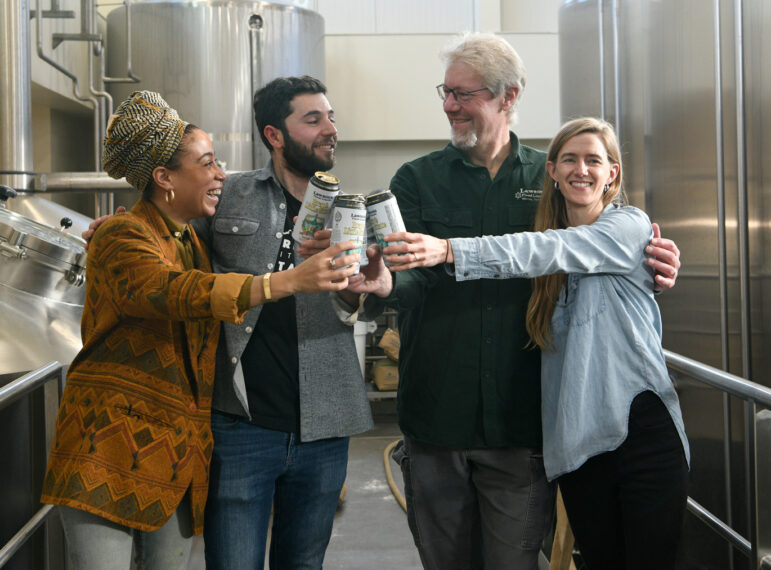
Lawson contacted VPR and found a willing partner. “There was a lot of natural resonance between us and the ethos that we both bring to our work,” said Angela Evancie, VPR’s director of engagement journalism and EP of Brave Little State. The podcast uses the Hearken crowdsourcing platform to gather and answer listeners’ questions about Vermont.
“We emphasize making our journalism more inclusive, more transparent and more fun, and fun is a big part of what Lawson’s Finest looks to create,” Evancie said. As a fan of the brewery, she also knew that a Brave Little State beer “would be really high-quality.”
Evancie and VPR established firm editorial boundaries early on in planning the beer, ensuring nothing about the podcast would change. Lawson’s is donating a portion of sale proceeds to VPR as part of the brewery’s “Good Brews for a Cause” initiative, which raises funds for local nonprofits.
The beer is now available year-round at locations throughout Vermont. Formerly envisioned as an IPA, it’s now a hazy pale ale heavy on citrusy hops but lighter in alcohol content — the technical term for this beer is “crushable.” The can’s label explains the partnership with VPR and features a code that drinkers can scan to learn more about the show.
“We haven’t been able to keep it on the shelf,” said Lawson, who even sees potential for a limited release of cans throughout the Northeast.
“The thing that excites us most is really the potential to reach a broader and more diverse audience through the exposure that this product will bring to our show,” said VPR’s Evancie. “We’re thrilled about the financial aspect of this really generous collaboration, and we’re really excited to see who discovers the podcast because they swipe that QR code on the can.”
Not a ‘big moneymaker’
For six years, Nine PBS in St. Louis has been using its collaboration with a local brewery as a focal point for audience engagement. In 2021, the pandemic forced it to take a new approach that, as it turned out, gave even more viewers a chance to chime in.
Nine PBS and 4 Hands Brewing Co. have made annual collaboration beers since 2016, though the pandemic shut down a 2020 offering. Each year the station and 4 Hands also held in-person events at the brewery, where teams of attendees infused beers with different ingredients and presented them to a panel of judges.
With such an event off the table last year, the station turned to social media. Facebook and Twitter users voted for the beer’s base brew and two ingredients for flavoring. Grapefruit zest edged out lime by one vote, giving the resulting lager a puckering first sip. The refreshing beer also includes grains of paradise, a peppery West African spice.
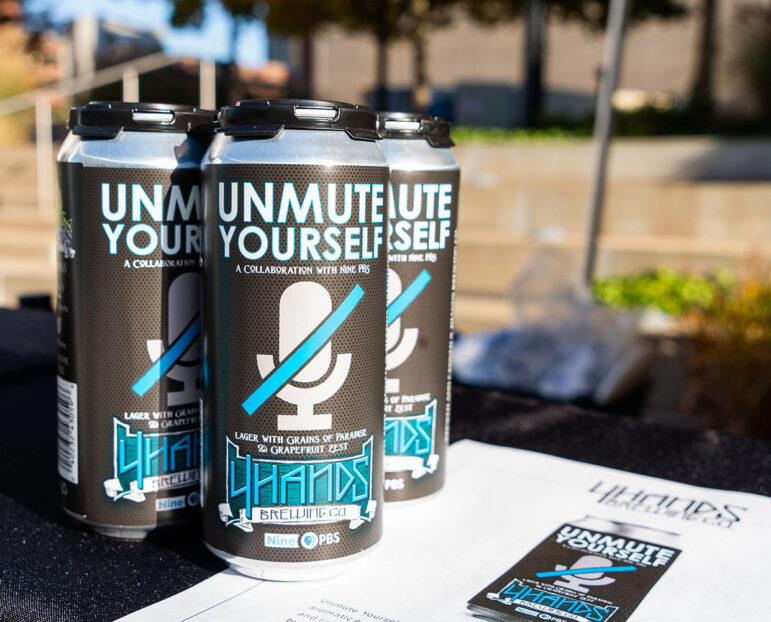
Its name also came from crowdsourcing. 4 Hands sent variety packs of its beers to Nine PBS staffers and board members to enjoy during a virtual social event. They broke into teams and brainstormed names for the new beer, then put the two most popular names up to a final social media vote. Unmute Yourself, a nod to pandemic-induced Zoom fatigue, beat out Lockdown Lager.
The voting process “was an opportunity to reach an even bigger audience, which we felt like we did,” said Nine PBS CMO Matt Huelskamp. The station celebrated the release of Unmute Yourself Nov. 20 with an event in its Public Media Commons outdoor gathering space.
The collaborations between Nine PBS and 4 Hands have never been “a big moneymaker,” Huelskamp said, but publicity and community engagement are really the point. Nine PBS’ logo was on 300 cases of Unmute Yourself that sold “fairly quickly,” he said.
“It gives us a chance to potentially reach a different audience, a younger audience,” Huelskamp said. “We’re kind of a beer town, but there’s a specific audience that is interested in this kind of thing, and they’re not necessarily the audience we always reach.”
Plus, it’s just fun. “We don’t get together and have a mixer with staff and board ever, really,” Huelskamp said. “So it gives us an opportunity to have some fun and get to know our board members. And everybody likes beer, right?”


